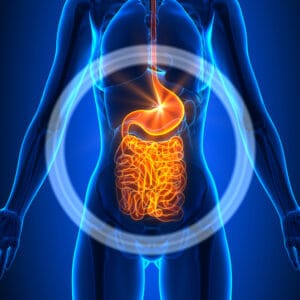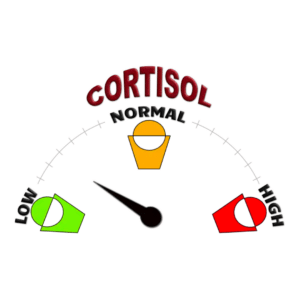Insulin Resistance
Insulin resistance is a condition in which the body’s cells become less responsive to insulin, a hormone that regulates blood sugar levels. This can lead to high blood sugar levels, which over time can damage the body’s organs and tissues. Various scientific studies have shown that adult weight gain is strongly associated with increased insulin resistance.
Insulin resistance occurs when the body’s cells don’t respond to insulin properly. This can happen when excess abdominal fat accumulates around the waist, combined with insufficient physical activity and a diet high in processed carbohydrates and saturated fats. The pancreas compensates for this by producing more insulin, which can lead to high insulin levels in the body.
The symptoms of insulin resistance include slow wound healing, headaches, blurry vision, increased hunger, frequent urination, and increased thirst. If left untreated, insulin resistance can lead to metabolic dysfunctions such as high cholesterol, high triglycerides, and fatty liver.
Stress
The accumulation of chronic stress can have a significant impact on a person’s weight, regardless of age or circumstance. The primary factor that influences weight gain in response to stress is the stress hormone cortisol, which is secreted by the adrenal gland. Although some people may experience weight loss as a result of chronic psychological stress, most people resort to emotional eating, which can alter their metabolism and lead to weight gain.
High levels of stress can also affect the body’s metabolism and insulin sensitivity, leading to increased weight gain. Our bodies have evolved to produce cortisol in response to threats, which triggers the accumulation of abdominal fat as an energy reserve. However, in modern times, this survival mechanism has become outdated and leads to disordered eating patterns that cause unnecessary fat storage.
Studies have shown that chronic stress resulting from feelings of anxiety, loneliness, and financial distress can lead to weight gain. People who live in socioeconomically disadvantaged areas are particularly susceptible to high levels of stress that increase their risk of obesity. The stress scores of a group of women and children from economically depressed neighborhoods were positively associated with their body mass index (BMI), according to a study published in the journal Stress in 2016.
Obese and overweight men are particularly susceptible to stress-related diseases due to their high levels of stress hormones. A study conducted on overweight and obese men found that their cortisol levels increased by 51% after every meal compared to only 5% in normal-weight men. This finding places men at a higher risk of developing cardiovascular disease and gaining additional weight.
Sleep
Sleep duration has been linked to obesity, with both short and long sleep durations encouraging the body to store fat. A study by scientists at Uppsala University in Sweden analyzed the sleep habits and body composition of 19,709 adults aged 45 to 75 years, finding that six to seven hours of quality sleep per night helped to protect against weight gain. Any habitual number of hours under or over that duration resulted in a higher fat body composition. The reasons for this are not fully understood, but research has suggested that sleep loss can alter neuroendocrine function and glucose metabolism, including affecting hormones that control energy storage as fat, appetite, and metabolism.
Chronic inadequate sleep has also been linked to decreased activity in parts of the frontal cortex that regulate food desire, amplification of activity within those brain parts likely responsible for selecting high-calorie foods, and disrupted circadian and circannual rhythms. Factors such as exposure to light at night, diets high in fat or sugar, and physical inactivity can further magnify the negative effects of sleep deprivation on feeding behaviors and fat storage mechanisms.
Environmental toxins

Toxins called obesogens, which are present in various products such as pesticides, herbicides, plastics, detergents, flame retardants, metal food cans, industrial and household products, and personal care products, disrupt the body’s endocrine system and cause weight gain. Stress magnifies their effect by confusing hormones and metabolism, resulting in further weight gain.
According to studies reviewed in the Journal of Environmental & Public Health, environmental obesogens can predispose babies and foetuses to increased fat mass and excess weight. Obesogens act on estrogen, androgen, and thyroid hormone receptors and alter the programming of fat cells and interfere with appetite control.
Hidden dietary triggers
Food cravings for “comfort” foods are triggered by two types of stimuli: food-specific cues (such as smells, colors, and sounds) and environmental cues (such as social gatherings and settings). These cues activate an area in our brain dedicated to pleasure, making cravings a psychological response.
The challenge of changing our eating behaviours to consume healthier foods or eat less is due to the unstable and unsteady nature of the behaviour change process. Even though methods like abstinence, counterconditioning, and punishment may inhibit unhealthy behavior, they do not necessarily erase it, especially if the underlying context within which the behaviour was learned is not addressed.
Moreover, food product manufacturers intentionally exploit our psychological weaknesses to influence our food behaviours and create excess weight. Comfort foods, often created by food chemists to change our brain chemistry, satisfy our emotional needs to reduce anxiety or calm stress. For instance, potato crisps stimulate the production of chemicals similar to those in marijuana, leading to addictive behaviours. Food chemists know how to manipulate the combination of calories from fat and carbohydrates to achieve the most potent “brain rewards.”
Lastly, scientific research indicates that we often crave what we last ate, and the conditioning involved in food preference resembles addiction. For example, the consumption of potato crisps repetitively leads to cravings for high-fat savoury snacks.
Diet foods and drinks

Studies have shown that people who consume diet drinks and other “dietary” products containing artificial sweeteners in an attempt to lose weight are actually contributing to weight gain. Contrary to popular belief, diet fizzy drinks and other products containing artificial sweeteners do not help with weight loss and are not healthier than their nondietary counterparts. In fact, they confuse the human metabolism, resulting in weight gain and contributing to obesity and metabolic disorders.
In 2017, neuroscientists at Yale University conducted a study on human volunteers who drank five different beverages sweetened with sucralose, each containing varying levels of sweetener calories. The results showed that the brain’s metabolic signal was responding to sweetness, and if there was a mismatch between sweetness levels and calorie levels, as is the case with artificial sweeteners, the human system becomes confused and pretends to metabolize calories that don’t really exist in the artificial sweeteners. The result is that calories absorbed from elsewhere get stored more readily in body fat.
This finding is supported by previous animal studies that found animals given artificial sweeteners gained more weight than animals who didn’t consume them. Additionally, when given the choice between water sweetened with calorie-free saccharin or intravenous shots of cocaine, 94% of the animals preferred the sweet taste of saccharin. This shows that intense sweetness can be more satisfying and addictive to the brain than highly addictive substances like cocaine.
The implications of these findings are significant, as people who unknowingly find artificial sweeteners to be as addictive as cocaine consume more drinks and products containing these sweeteners, ultimately leading to weight gain. Food scientists and marketing professionals in the processed food industry are aware of this trick and exploit it for their own gain.
Tricks of the food industry
The food industry has developed certain chemical combinations in their products, like potato crisps that make them highly addictive. The high ratio of fats and carbohydrates, combined with salt, stimulates the pleasure centers of the brain and directly triggers the central reward circuits. Research shows that foods with high fat and carbohydrate content are valued more and can be as addictive as hard drugs.
Chocolate is another food substance that surpasses potato crisps on the addiction scale, with scientists experimenting with various combinations of its key ingredients to map the human brain regions most affected by them. The food industry calls the process of blending basic agricultural products like potatoes with chemical additives “fortification” and “enrichment,” resulting in “hyperpalatable” and “ultra-processed” foods that are more sought after because they activate the brain’s pleasure circuits more than less processed foods.
These ultra-processed foods tend to be energy-dense, low-cost, and nutrient-poor leading to negative health outcomes like obesity. Research shows that consuming even a modest amount of ultra-processed foods each day can add at least 500 additional calories to the body, leading to excess weight buildup. Ultra-processed foods also disrupt gut-brain signals, preventing us from feeling satiated and leading to overeating.
To overcome the toxic effects of these foods, it is crucial to create self-healing lifestyle habits and health-protective strategies. The challenges posed by the toxic synergy of hormone imbalances, sleep deprivation, chronic stress, chemical toxins exposure, and food cravings make it difficult for most dietary and weight loss plans to succeed.








